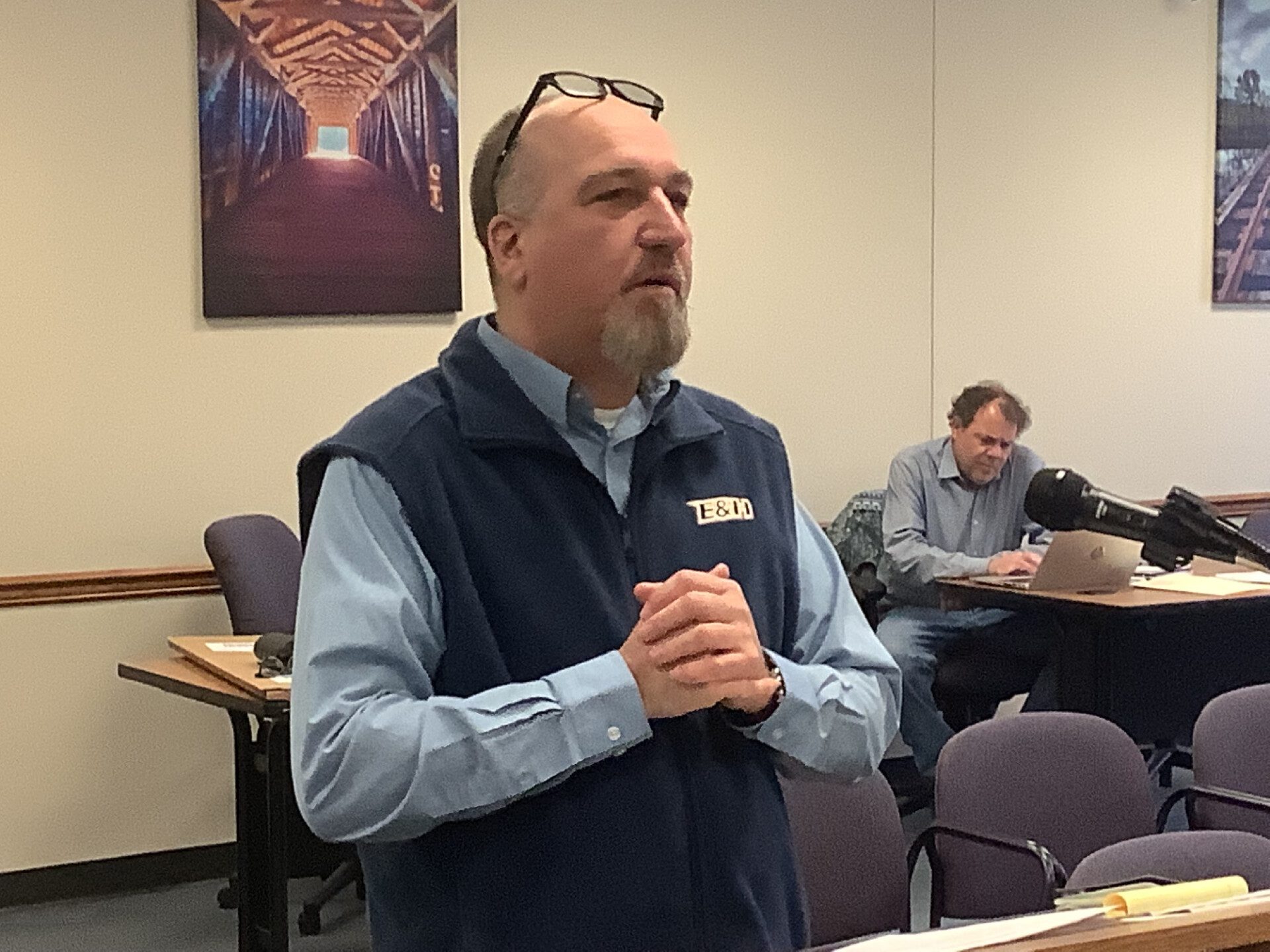Alleghany County Board Of Supervisors Gets Advice Concerning Economic Development

Virginian Review Article
Brian Reed, Mount Rogers Planning District Commission’s deputy director, presented his views of the potential for economic development in The Alleghany Highlands to the Alleghany County Board of Supervisors on Sat., Jan. 28.
At the called work session, County Administrator Reid Walters introduced Reed who shared ways Appalachian towns and counties farther to the west of Alleghany Co. have developed their resources to draw tourists and new businesses to the area.
He shared examples from Bland Co., Grayson Co., St. Paul, Galax, Marion, Wytheville and Abingdon concerning the strides those localities have made to strengthen their economies.
Jessica Littlejohn, vice-president of Hurt & Proffitt based in Blacksburg, accompanied Reed and assisted him by handing out informational material.
Reed noted that localities need to retain the people and industry that is already there while drawing new people and industries to the areas.
“There is a danger of replacing local people with people who come in,” Reed observed.
He stressed the need for adequate and affordable housing, and he conveyed that a shortage of housing has been a problem in Southwest Virginia for a long time.
The gist of Reed’s presentation following his tour of the area is that the Alleghany Highlands is blessed with having I-64 running across the county from the West Virginia state line to North Mountain.
He noted that the development along the I-64 corridor is vital to future development, and he pointed out that there are already schools, the Lewis Gale Hospital-Alleghany, Love’s Travel Center, the YMCA, new apartments nearly completed beside the YMCA, the City of Covington, Mountain Gateway Community College and the Town of Clifton Forge all situated in the I-64 corridor.
He noted that infrastructure is needed, namely water and sewer for future development, and he cited numerous examples of what towns, cities and counties in the area he represents have accomplished by obtaining funding via grant writing on the federal and state levels.
“Economic development is every locality’s priority,” Reed reiterated.
Reed touted the development of trails for off-road vehicles as an attraction that has brought significant revenue to localities in his area. He pointed out that secondary roads in Va. can legally be made available for four-wheelers, allowing those visitors to ride into town to purchase goods.
Reed cited 604-B Project from the 1990s as a source to tap into for funding.
Dr. Ronald Goings, the supervisor who represents the Clifton Forge East District, revealed that Clifton Forge has excess water, the best in the Commonwealth of Virginia.
Alleghany Co. buys its water from the Town of Clifton Forge where the spring is located on the mountain overlooking the town. The spring feeds the Smith Creek Reservoir, and the creek meanders down the mountainside through the Town of Clifton Forge where it empties into the Jackson River.
The idea of forming an area housing authority that would enable grant funds to be secured and provide assistance to housing development was discussed.
Reed shared that the City of Abingdon is in need of one-bedroom rentals, and he said that Galax has been giving away free lots to home builders in order to boost the economy.
“You have a community college, recreation facilities and easy access to everything,” Reed concluded after advising the supervisors to partner with the Virginia Tourism Corporation and the Central Shenandoah Planning Commission.
The consensus reached during the discussion is that housing and economic development need to occur at the same time.